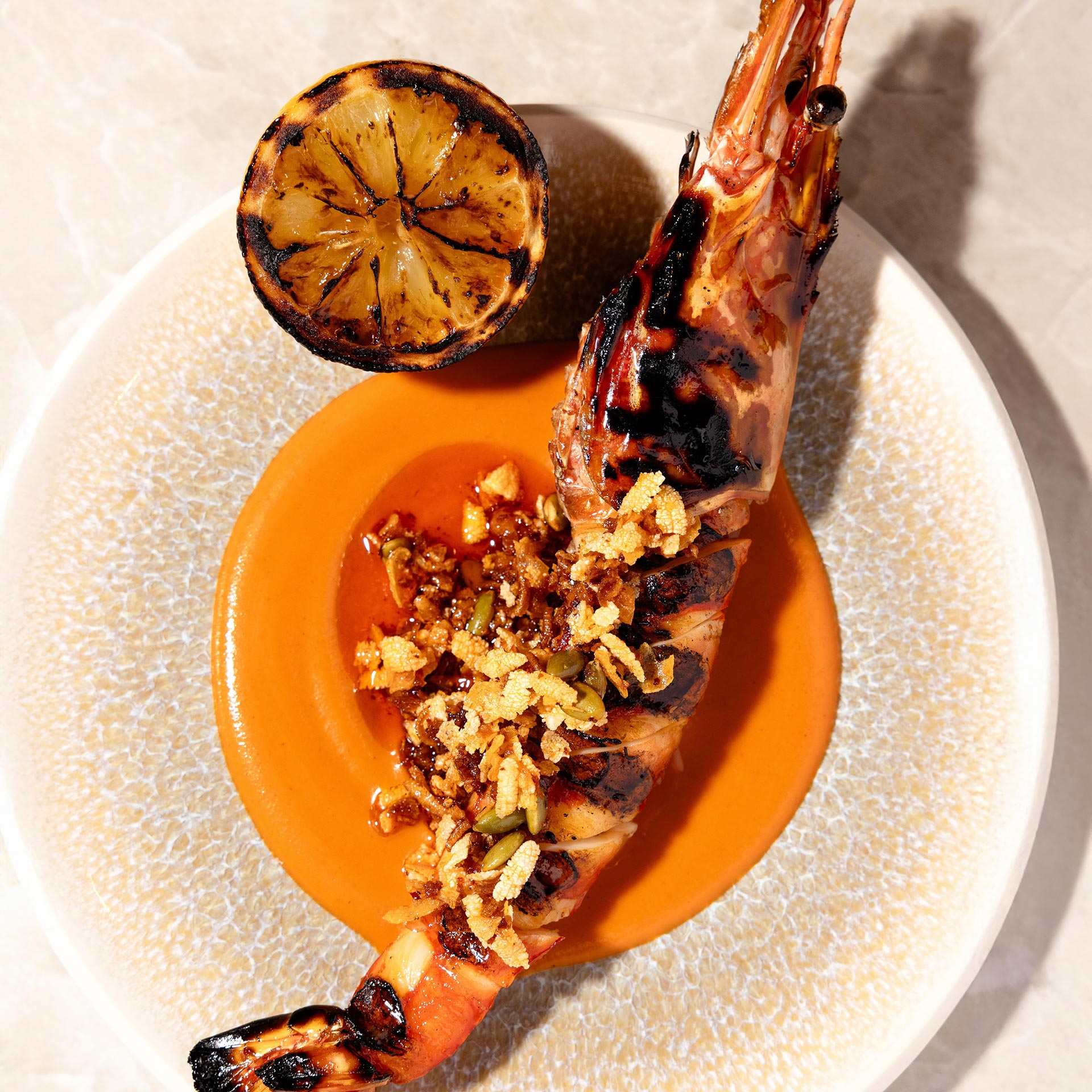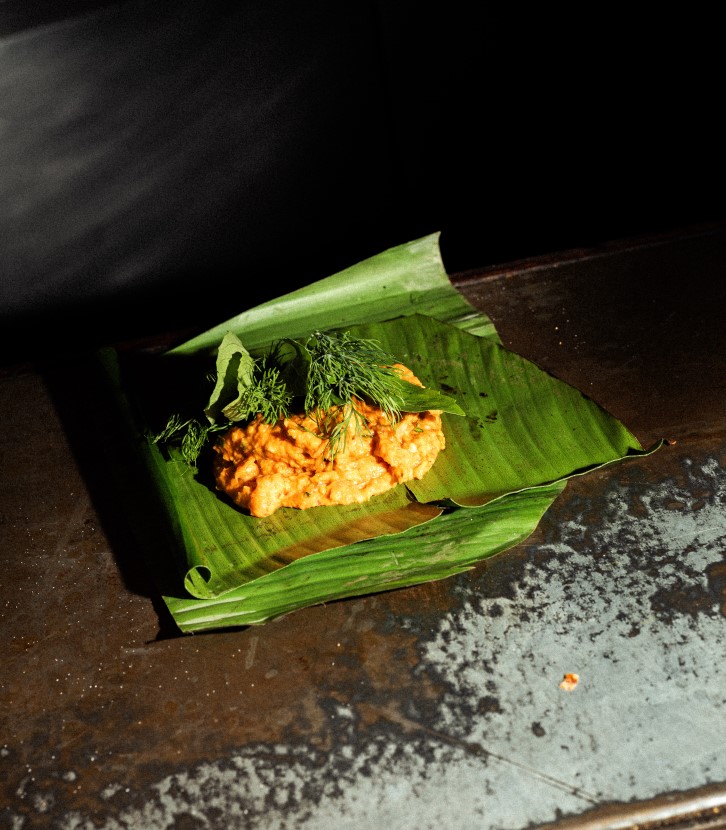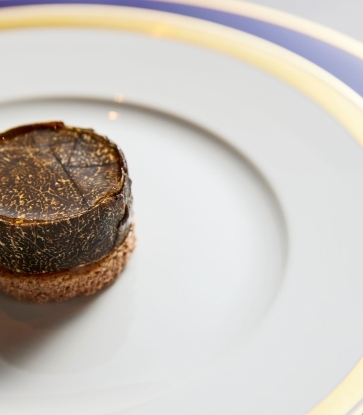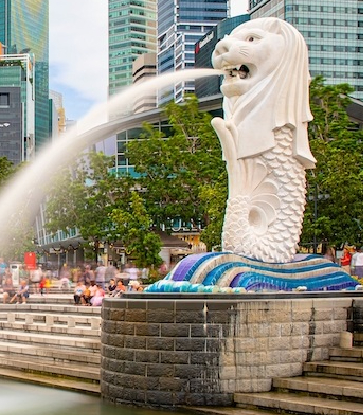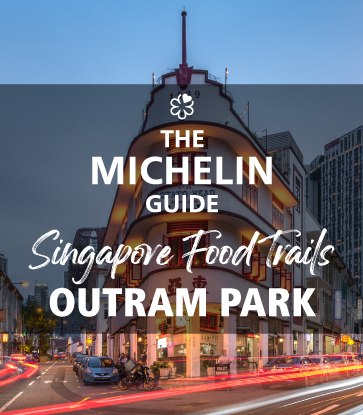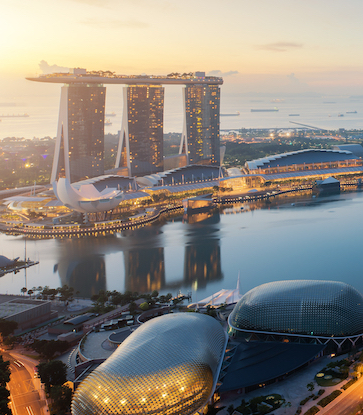
Paying homage to local ingredients is one of the cornerstones of one-MICHELIN-starred Thai fine dining restaurant Saawaan in Bangkok. The restaurant celebrates and reimagines age-old traditional Thai cooking techniques in a stylish and elevated manner, a theme that also runs through the restaurant’s innovative desserts. Pastry chef Arisara ‘Paper’ Chongphanitkul, who graduated from Gastronomicom culinary school in southern France, honed her craft under top pastry chefs such as Sadaharu Aoki and Hugues Pouget in Paris and Laurent Gerbaud in Brussels.
She displayed her signature whimsical flair at this year’s gala dinner, creating a dessert of Calamansi Mousse, Young Coconut and Coconut Sugar Streusel, Chilli, Nespresso Exclusive Selections Kenya Milima Coffee Caramel and Salt-cured Egg Yolk, made to look like a beloved Singaporean dish.
What is the dish you presented for the MICHELIN Guide Singapore 2019 Star Revelation and Gala Dinner?
It is a calamansi mousse with young coconut, shaped like a crab claw that was inspired by a Singaporean dish. So, inside the crab claw is sour calamansi mousse with young coconut and crunchy coconut sugar streusel. Underneath that is coffee-chilli caramel, chilli sauce gel and tomato sponge cake. Sprinkled on top is salt-cured egg yolk powder.
What was the inspiration for your dish?
I wanted to develop a playful take on a local favourite dish — the Singapore chilli crab — with a Southeast Asian dessert twist. I added some savoury ingredients from the real chilli crab dish into the dessert, for example, chilli, tomato and salted egg, but it still tastes like dessert. In terms of flavour, at first you’re going to get some freshness and sourness from calamansi, some creaminess and a soft bite from the young coconut inside, contrasted with crunchiness from the coconut sugar streusel. The flavour changes when you eat it with the coffee caramel, chilli sauce gel and yolk powder. It gives a complex favour with a light bitterness, saltiness and spiciness.
How does this dish embody sustainability?
Where we could, we got our ingredients from Singaporean growers or suppliers who source their products responsibly. We’ve used almost every part of every product that we can to reduce wastage and we ordered quite a precise quantity of ingredients that we need.
Why is sustainability important to you?
As a young chef working in restaurants, it bothered me to see the waste most kitchens are creating. So when I was able to work in my own kitchen, I try as much as I can to eliminate waste and work with local farmers to come up with sustainable, quality products for my food. I try to research and find any way I can to reduce plastic or imported products in my restaurant. We visit our local farm suppliers regularly to walk the farm with them and inspect the methods they use to grow the produce for us. By meeting with them regularly to talk about what they’re growing and what we need, we’ve been able to add more and more Thai-grown and -raised products to our menu.



